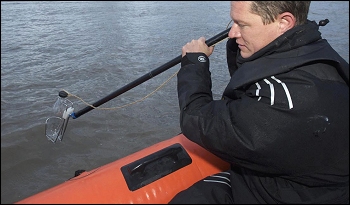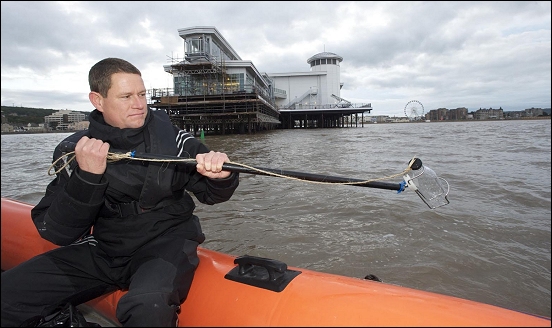Scientists are completing Somerset’s first ever comprehensive study of DNA extracted from water samples in an attempt to further improve bathing water quality in the Bristol Channel.
Wessex Water is leading a project to complete microbial source tracking (MST) in Burnham-On-Sea plus Weston and other coastal towns.
It involves isolating the DNA of bacteria found in bathing water samples so that it can be analysed to help determine what animal it might have come from – such as cattle, birds and humans.
Pioneering MST has been used in other areas, such as forensics, for a number of years, but it is a new technology to the water industry which the company hopes to use to gain a better understanding of where low levels of bacteria sometimes found in water come from.
The study is being completed ahead of new stringent legislation which comes into force in 2012 and involves tightening the current bathing water standards.
Ruth Barden, Wessex Water’s environmental regulation manager, told Burnham-On-Sea.com: “Bacteria sometimes found in bathing water can come from many different sources which in the past have been extremely difficult to identify.”
 “But this scientific technique combined with other survey work we are using will help us eliminate this issue.”
“But this scientific technique combined with other survey work we are using will help us eliminate this issue.”
“Once we have identified the source of bacteria we can work with the Environment Agency to help focus efforts on any areas that would benefit from improvements where activities may be influencing water quality.”
The study has seen a series of 24 hour and seven day sampling sessions taking place in the Burnham area during this year’s bathing season, which runs from May until September.
Samples are taken close to the waters edge 30cm below the surface, the average location bathers swim during a trip to the coast.
Once collected, the samples are tested for the presence of bacteria at Wessex Water’s laboratory in Saltford.
Additional sampling is carried out at a specialist centre near Cardiff for MST testing to determine where bacteria found may have come from.
Mrs Barden said the samples will be studied and the results processed during the winter months.
She added: “We hope the results of these innovative surveys will give us the opportunity to invest in work which will bring maximum improvements to water quality. This may involve working with local councils and landowners or even carrying out work on our sewerage network.”
“Good bathing water quality is imperative to attract tourists to coastal towns so it is essential that we start studying which improvements should be made to ensure Somerset and North Somerset’s beaches are ready for new legislation.”
Wessex Water already uses multi-million pound treatment processes to safeguard bathing waters. For the last two years all the bathing waters in Somerset have passed the current bathing water standards and some beaches exceeded them.
The water company is investing £26m at Weston-super-Mare sewage treatment works to further improve the quality of waste water it already treats to high standards before safely returning it to the environment.
A further £18m is being spent on increasing the capacity of the sewerage network so stringent Environment Agency discharge consents will be met for years to come.
MST testing will take place for a further two bathing seasons and may continue in the future so that the company can monitor how any new assets they invest in to improve bathing water quality are performing.
It is being used alongside traditional analysis methods to safeguard the environment for the future.







